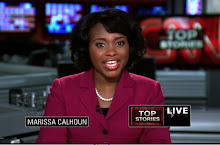
Racial debates heat up yet again as our Country watches and weighs in on the Sherrod case. Latest reports say that Sherrod plans to sue blogger Andrew Breitbart for falsely representing her personal opinions towards a white man who she says treated her as if she was unqualified to serve him in the capacity of her position over 24 years ago. This comes just days after Sherrod publically opened up about the murder of her father, gunned down by a white man on his own property who was never acquitted of the crime. What does all of this say about the so-called state of a “post-racial” America?
Among many other things, it says that “post-racial” America is non-existent. It is time for Americans to have a more serious and more focused conversation about RACE. One that is not diluted with convenience and overshadowed by politics; one that is for lack of better word—REAL! Moreover, it is time for all parties involved in this conversation to understand the complex difference between historicized racial hatred which yields the oppression of specific minority groups and reactionary biases or preferences that have as a result developed out of fear. Simply put, too much pressure applied to anything usually results in an eruption-- this is how I would describe Sherrod’s sentiments and those of Black’s all across this nation who has either silently or publically expressed their internal torment with the color of their skin.
I am going to ask and age old question that, well to be honest—No one has ever answered. What if American slavery never existed? To answer this question I must begin by stating the painfully obvious: there would be no America. Unfortunately, but ironically fortunate enough for us this country benefited tremendously from the institution of slavery. From the production of good ole’ “king cotton” and the buying and selling of human cargo in order to sustain the lifestyle’s of the Southern elite-- American slavery, despite its faultiness, was the foundation for the success of this capital intensive nation. The effects of the racial tension which developed in the presence of the exploitation of a specific group of people and then continued in the form of Jim Crow laws and other unwritten rules discriminatory against minorities in this country have manifested themselves into institutionalized racism.
As such, most African-Americans being those disproportionately negatively impacted by the institution—have what one might consider a bitter-sweet sense of camaraderie for the States. They may raise their hands across their hearts and solemnly swear to hold an affinity to America, but deep down inside any seemingly conscious person of color has a sense of resentment; one that can only truly be eradicated from the spirit should they use their experiences as a catalyst for change. In my opinion, this describes Sherrod’s experiences with race in America. She recognized that the historicized racial hatred of her ancestors coupled with the senseless death of her father had built a barrier around her human heart—that barrier was Black.
While holding and affinity to one’s race is undoubtedly a powerful source of motivation, it can also prevent them from being able to appreciate other commonalities that they may share with other individuals and that may be necessary to recognize in times of turmoil. Yes, being able to join forces to make change alongside those who share you beliefs, preferences, and identities sometimes involves breaking the racial barrier. When Black and white wives are beat and abused—should they march separately? When Asian democrats and Black democrats vote—should they had to separate polls? When gays are beaten and then left for dead—should they only attend the vigils of the victims whose skin color matches theirs? And when white Muslims and Black Muslims are treated like terrorists in their won home—should they stand apart?
I have always believed that the time for change, the time for healing—is always right now! Learning to choose our words wisely is something that we can all learn to do better. As such, racial hatred is a learned behavior-- one that is often embedded into our pysche at a very young age. When children sit around dinner tables where parents discuss their disgust or resentment of other people based on biases that their parents most likely had this cycle continues. In order for America to truly overcome its racial burden the responsibility must fall on the shoulders of everyone. People must be able to express their torment and move past it--sometimes publically. This sort of healing can have a ripple effect. Organizations of separatism must not necessarily dissolve but must indefinitely recognize the importance of a unifying umbrella. Thus we can still have the Tea Party, but just not without the coffee!

